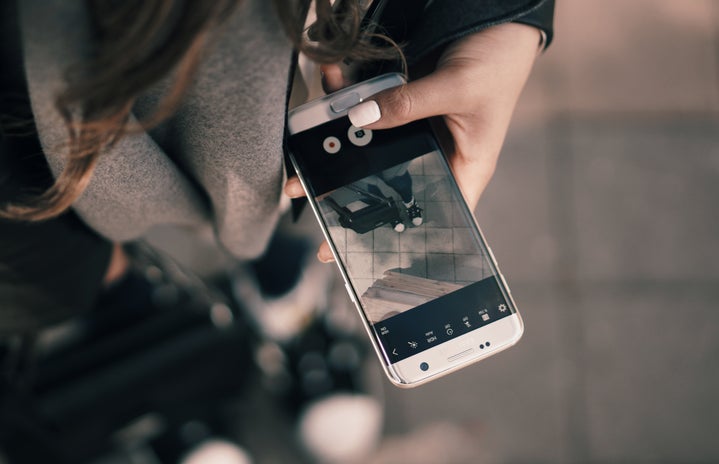Meet 18 year-old Essena O’Neill.
Her name has been popping up recently due to her social movement, Social Media Is Not Real Life. In short, it is her declaration that the enviable life she has created in photos online was a sham, a means to an end and that end was validation. We live in a technological age that has blossomed under new inventions and means of social connectedness. Millennials use social media as a way to share their day and personal experiences. But to Essena, it’s no longer about connecting as human beings.
In her original post about quitting social media she said, “Without realising, I’ve spent [a] majority of my teenage life being addicted to social media, social approval, social status and my physical appearance. Social media, especially how I used it, isn’t real. It’s contrived images and edited clips ranked against each other.”
Essena amassed a global internet following with her YouTube videos on veganism and daily life. Her Instagram featured photos of her in bikinis, traveling and advertising different products. To her it was a way of life, up until her recent exit from the social media platform on October 27. In her final Instagram post she discussed how she contributed to the issue of social media projecting fake lives by saying, “It was never my conscious intention, but I deluded a lot of people.” In order to remedy this “deception,” Essena re-edited captions on her remaining photos as a message to her followers. The new captions are what she calls “NOT REAL LIFE” and detail the emotions she felt during and after each photo was taken. Many times she felt consumed by a desire for likes, as many teens today do.
Her push is an admirable one that is more than just deleting an account. She aims to create a new image of self-worth that, in her eyes, has been stunted by social media. On her new website www.letsbegamechangers.com, she delves more into the stories behind the photos. She explains how her desire to be “internet famous” and accepted by society drove her to sexualize her body and starve herself. She is not one of the first to call out social media for it’s flaws, but she is the first to use herself as a prime example of the detriment it can cause when used as a means of validation.
Since social media use is such an integral part of social life today, Essena’s quitting could be seen as detrimental to her brand– but she isn’t bothered by that possibility. Instead, she’s intent on being what she calls a “game changer.”
“I wish to create a platform that acts to spread new-age messages of conscious living, addition to technology, minimise the celebrity culture, promote veganism, plant based nutrition, environmental awareness, social issues, gender equality, controversial art etc,” she writes on the info page of her new website.
Other internet-famous people have acknowledged her move as positive, including fitness guru Kayla Itsines, who posted an Instagram photo with a lengthy caption explaining her own social media presence.
However, I think it’s important to note that not all social media is bad. Many times it connects people who would have never existed in the same circles. It can help keep people up to date on trends, local happenings and provide entertainment. Like Kayla, other notable social media stars, such as Instagram’s @getfitbrooklyn, came forward to share that while they admire Essena’s choice, they want to make clear that they are honest about products they promote and the lives they lead offline.
So this begs the question, what kind of social media use is detrimental? Is there a set way to use social media without creating a web-world of one-upping and envy? As @getfitbrooklyn sarcastically put it, should we, “go on a witch hunt for who’s out to trick us in life?” No. Introspection is key in this case, so when you’re walking down the street, see how many people have their eyes on their phones and compare it to yourself and how often you’re on your Twitter account or checking likes on Instagram.
It’s important to remember that Essena is of college-age and therefore had as much of a relationship with social media as we do. She has realized that for her, the gripping urge to post something memorable and likeable consumed her. This is a message for all social media users, whether you’re vehement or apathetic: social media is what you make of it. The only validation that can sustain you is that which comes from within, not from a number.


